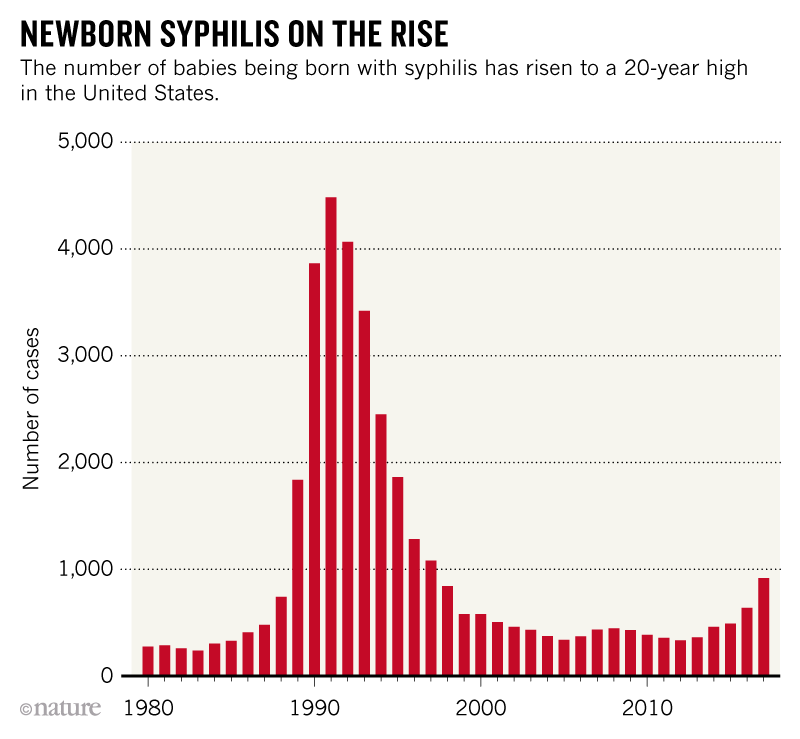


Evolving Enzymes
Inovating IVD




Syphilis cases in US newborns spike to 20-year high

Syphilis infections can be deadly if left untreated. Credit: CDC/SPL
The number of babies born in the United States with syphilis reached a 20-year high in 2017, according to a report1 by the Centers for Disease Control and Prevention (CDC).
Reported cases totalled 918 last year, more than double the number four years earlier and the most cases in a single year since 1997 (see ‘Newborn syphilis on the rise’). Before 2013, the number of cases had been dropping for 5 years.

Source: CDC
Syphilis is a sexually transmitted infection (STI) caused by the bacterium Treponema pallidum. Early symptoms include sores on the genitalia or anus that give way to a skin rash. After these first stages, most people have no symptoms, but if left untreated, the late stages can lead to neurological damage and even death. The disease is treatable at any stage with antibiotics.
Pregnant women who are infected with syphilis can transfer the disease-causing bacterium to their babies either through the placenta or during birth. If the disease isn't treated, it can lead to premature birth, miscarriage, stillbirth or death of the baby soon after birth. Babies that survive might have deformed bones, jaundiced skin, or brain or nerve damage.
The rise in cases of syphilis in newborns — known as congenital syphilis — might, in part, be a result of physicians missing opportunities to screen and treat pregnant women with syphilis, says Virginia Bowen, an epidemiologist with the CDC in Atlanta, Georgia. “Many women who are giving birth to babies are not receiving timely prenatal care,” says Bowen, which is an essential step to detecting the disease and preventing babies from being born with it.
Socio-economics could also play a part. Syphilis has historically been associated with factors such as poverty, substance use or mistrust of the health-care system, Bowen says. The sharp rise in crack cocaine use in the United States during the late 1980s and early 1990s, for example, is thought to have contributed to a large spike in the number of babies born with syphilis2.
The latest increase in newborn cases mirrors an overall increase in STI cases nationwide, including syphilis in women of reproductive age. Between 2013 and 2017, the number of women and girls with early stages of syphilis rose by 148%, from 1,500 to 3,722, according to the report.






